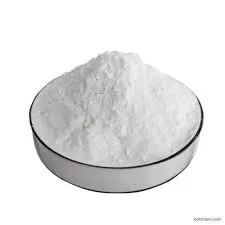- Afrikaans
- Albanian
- Amharic
- Arabic
- Armenian
- Azerbaijani
- Basque
- Belarusian
- Bengali
- Bosnian
- Bulgarian
- Catalan
- Cebuano
- Corsican
- Croatian
- Czech
- Danish
- Dutch
- English
- Esperanto
- Estonian
- Finnish
- French
- Frisian
- Galician
- Georgian
- German
- Greek
- Gujarati
- Haitian Creole
- hausa
- hawaiian
- Hebrew
- Hindi
- Miao
- Hungarian
- Icelandic
- igbo
- Indonesian
- irish
- Italian
- Japanese
- Javanese
- Kannada
- kazakh
- Khmer
- Rwandese
- Korean
- Kurdish
- Kyrgyz
- Lao
- Latin
- Latvian
- Lithuanian
- Luxembourgish
- Macedonian
- Malgashi
- Malay
- Malayalam
- Maltese
- Maori
- Marathi
- Mongolian
- Myanmar
- Nepali
- Norwegian
- Norwegian
- Occitan
- Pashto
- Persian
- Polish
- Portuguese
- Punjabi
- Romanian
- Russian
- Samoan
- Scottish Gaelic
- Serbian
- Sesotho
- Shona
- Sindhi
- Sinhala
- Slovak
- Slovenian
- Somali
- Spanish
- Sundanese
- Swahili
- Swedish
- Tagalog
- Tajik
- Tamil
- Tatar
- Telugu
- Thai
- Turkish
- Turkmen
- Ukrainian
- Urdu
- Uighur
- Uzbek
- Vietnamese
- Welsh
- Bantu
- Yiddish
- Yoruba
- Zulu
Nov . 29, 2024 11:38 Back to list
Formulation and Application of Levamisole Hydrochloride with Oxyclozanide Oral Suspension for Treatment
Levamisole Hydrochloride and Oxyclozanide Oral Suspension An Overview
Levamisole hydrochloride and oxyclozanide oral suspension is a veterinary medication commonly used to treat parasitic infections in livestock and pets. This combination medication is particularly effective against nematodes and certain trematodes, offering a broad spectrum of action that is essential for maintaining the health and productivity of animals. In this article, we will explore the components, mechanisms, uses, and considerations of this oral suspension.
Components and Mechanism of Action
1. Levamisole Hydrochloride Levamisole is a synthetic imidazothiazole derivative that primarily acts as an anthelmintic, targeting helminths, particularly roundworms. It works by stimulating the nervous system of the parasites, leading to paralysis and eventual expulsion from the host's body. Additionally, it has immunomodulatory properties, enhancing the immune response in animals and helping them resist infections.
2. Oxyclozanide Oxyclozanide is another anthelmintic agent that is particularly effective against trematodes, including liver flukes. It operates by interfering with the energy metabolism of the parasites, leading to their death. The combination of levamisole and oxyclozanide addresses a wider range of parasitic infections, making this oral suspension a versatile solution in veterinary medicine.
Uses in Veterinary Medicine
Levamisole hydrochloride and oxyclozanide oral suspension is primarily used in treating gastrointestinal parasitic infections in various animals, including cattle, sheep, goats, and dogs
. Its effective action against both nematodes and trematodes makes it a valuable choice for livestock producers who need to ensure the health and productivity of their animals.Veterinarians may prescribe this combination for several conditions, including
levamisole hydrochloride and oxyclozanide oral suspension

- Gastrointestinal Worm Infections These can lead to significant health issues, including weight loss, anemia, and decreased milk production in dairy animals. - Liver Fluke Infections Particularly in wetland grazing areas, where liver flukes are prevalent, this medication helps reduce the burden of these parasites.
Administration and Dosage
The oral suspension is typically administered directly to the animal or mixed with feed. Dosing may depend on the specific species and weight of the animal, and it is essential to follow the veterinarian’s recommendations for dosage to ensure effectiveness while minimizing the risk of toxicity.
Safety and Considerations
While levamisole hydrochloride and oxyclozanide oral suspension is generally safe when used as directed, careful consideration should be given to the following factors
- Withdrawal Periods Animals receiving this medication should observe appropriate withdrawal periods before their meat or milk can enter the food supply to ensure consumer safety. - Resistance Management The emergence of anthelmintic resistance is a growing concern in veterinary medicine. Hence, it is crucial for livestock producers to implement integrated parasite management strategies, including rotation of anthelmintics and regular fecal testing, to prevent the development of resistance. - Contraindications This medication may not be suitable for all animals. Specific populations, such as pregnant or lactating animals, should be treated with caution and under veterinary guidance.
Conclusion
Levamisole hydrochloride and oxyclozanide oral suspension represents a robust option for the management of parasitic infections in veterinary practice, combining efficacy against a range of parasites with the potential to enhance the immune response. However, responsible usage, adherence to dosing guidelines, and awareness of the potential for resistance are critical to ensuring the ongoing effectiveness of this valuable medication. By prioritizing animal health and following best practices in parasite management, veterinarians and livestock producers can work together to maintain healthy, productive animals.
-
Guide to Oxytetracycline Injection
NewsMar.27,2025
-
Guide to Colistin Sulphate
NewsMar.27,2025
-
Gentamicin Sulfate: Uses, Price, And Key Information
NewsMar.27,2025
-
Enrofloxacin Injection: Uses, Price, And Supplier Information
NewsMar.27,2025
-
Dexamethasone Sodium Phosphate Injection: Uses, Price, And Key Information
NewsMar.27,2025
-
Albendazole Tablet: Uses, Dosage, Cost, And Key Information
NewsMar.27,2025













